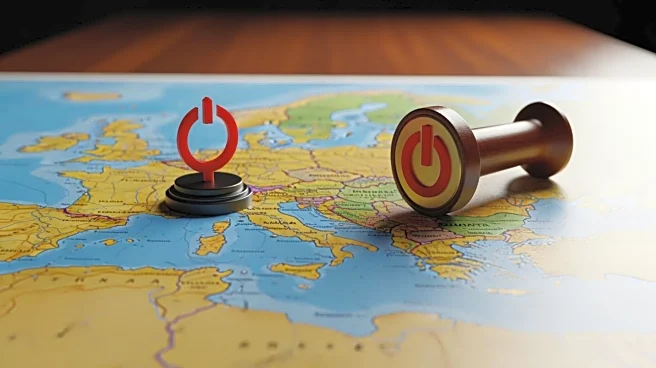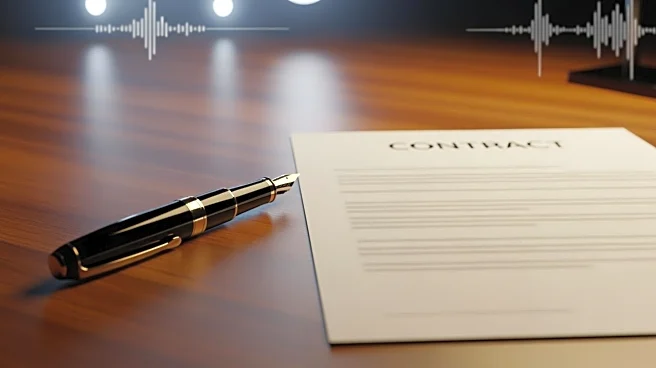What's Happening?
Russian President Vladimir Putin convened the permanent members of the Russian Security Council following a lengthy phone call with President Trump. The call, which lasted nearly two-and-a-half hours,
focused on the potential U.S. supply of long-range Tomahawk missiles to Ukraine. This development comes as President Trump is set to meet Ukrainian President Volodymyr Zelensky, who is expected to advocate for the missile acquisition to target Russian infrastructure. The conversation between Trump and Putin was described as substantive and confidential, with plans for a future summit in Budapest to discuss ending the Ukraine conflict.
Why It's Important?
The potential supply of Tomahawk missiles to Ukraine represents a significant escalation in the ongoing conflict with Russia, which has warned against such a transfer. The discussions between Trump and Putin could influence U.S.-Russia relations and impact the geopolitical landscape in Eastern Europe. The meeting between Trump and Zelensky is crucial, as it may determine the U.S.'s military support for Ukraine, affecting the balance of power in the region. The upcoming summit in Budapest could be pivotal in negotiating a resolution to the conflict, with implications for international diplomacy and security.
What's Next?
President Trump is scheduled to meet with Ukrainian President Zelensky at the White House, where the missile supply issue will likely be a key topic. Preparations for a new summit between Trump and Putin are underway, with the meeting expected to occur in Budapest within two weeks. This will be Putin's first visit to an EU country since the Ukraine war began. The summit aims to explore solutions to the conflict, with senior officials from both nations set to meet next week to lay the groundwork for discussions.
Beyond the Headlines
The discussions between Trump and Putin highlight the complex dynamics of international diplomacy, where military decisions can have far-reaching consequences. The potential missile supply to Ukraine raises ethical questions about arms transfers and their impact on civilian populations. The involvement of Hungary's Prime Minister Viktor Orban in arranging the summit underscores the role of smaller nations in facilitating dialogue between major powers. The situation also reflects broader tensions in U.S.-Russia relations, with implications for global security and stability.











